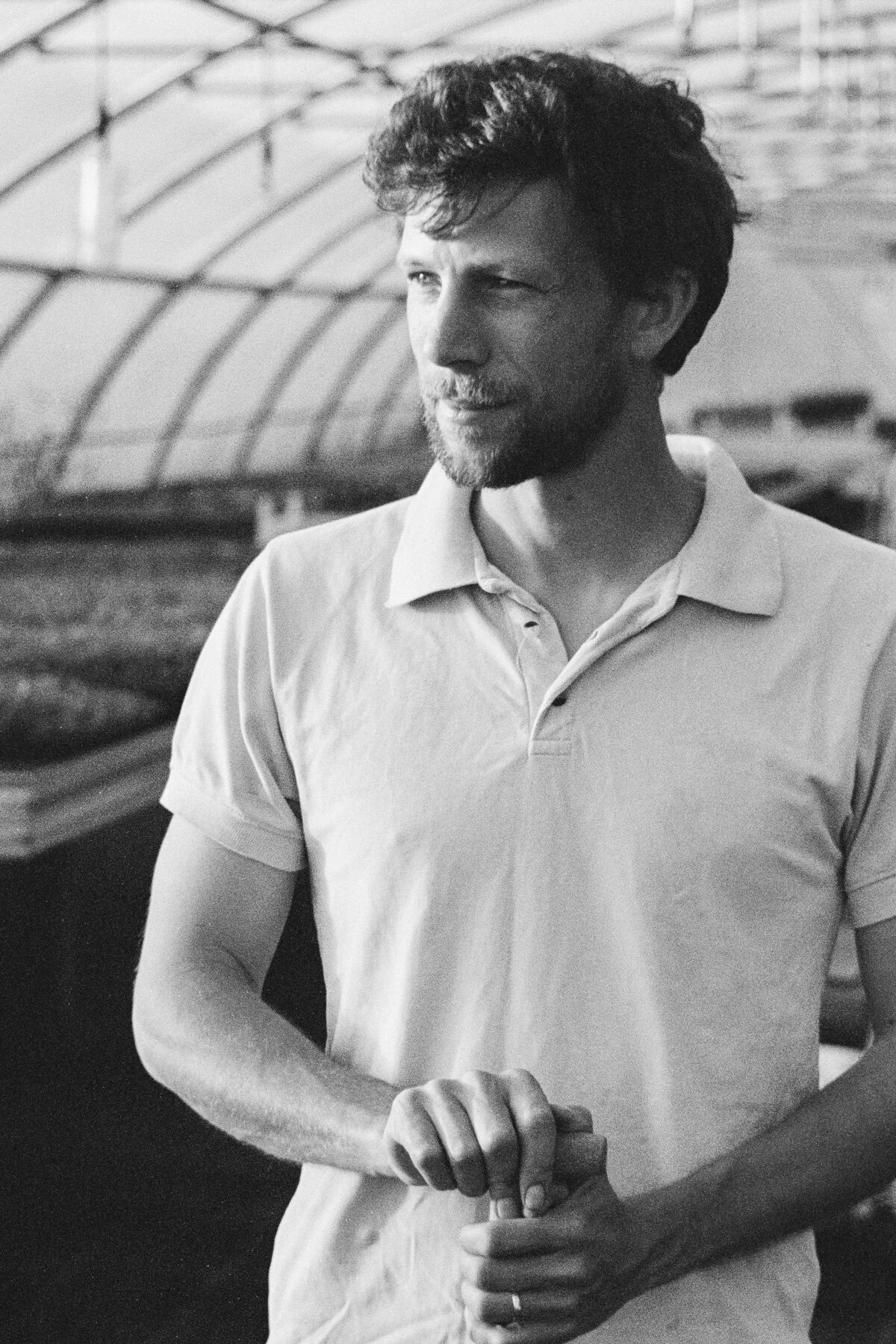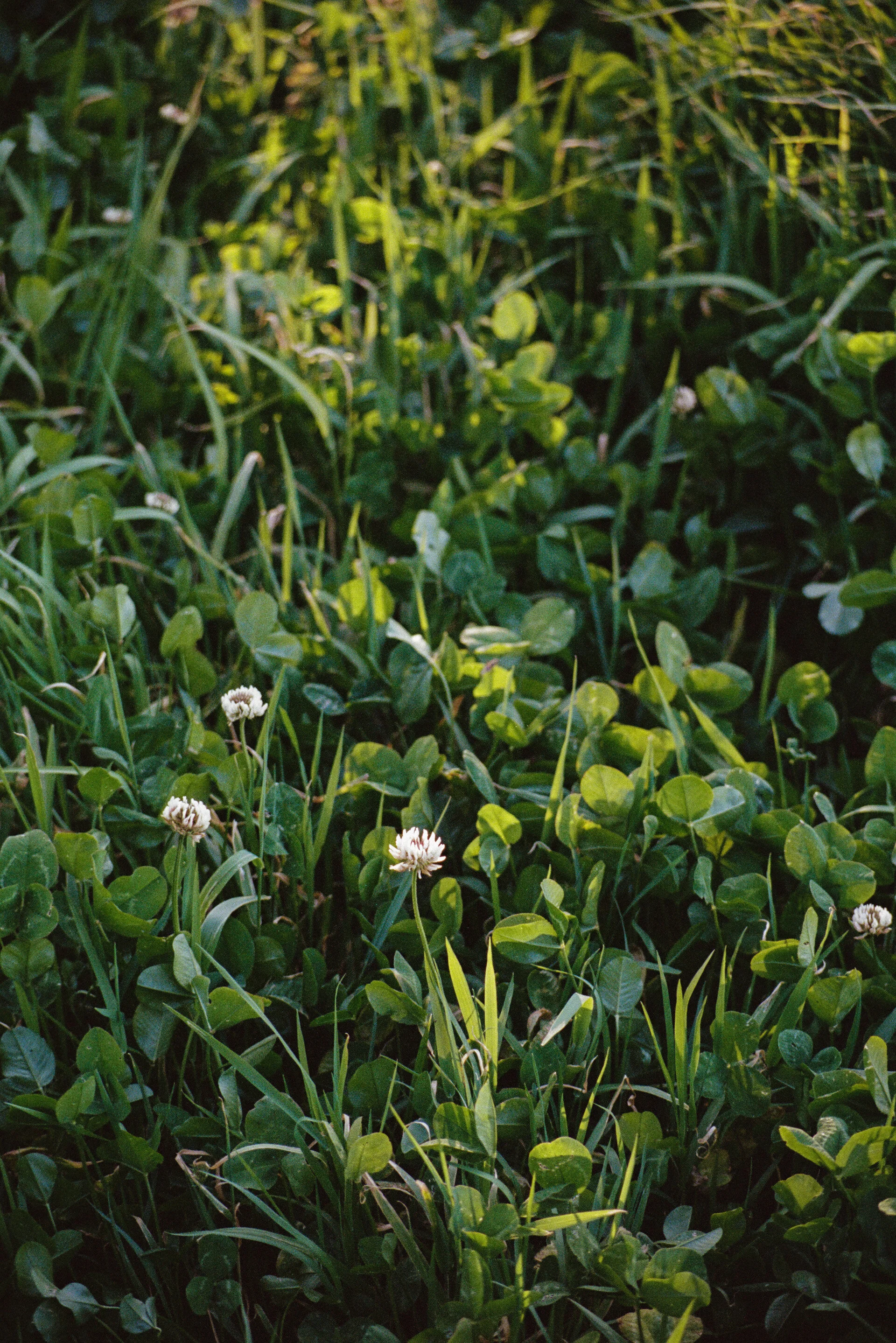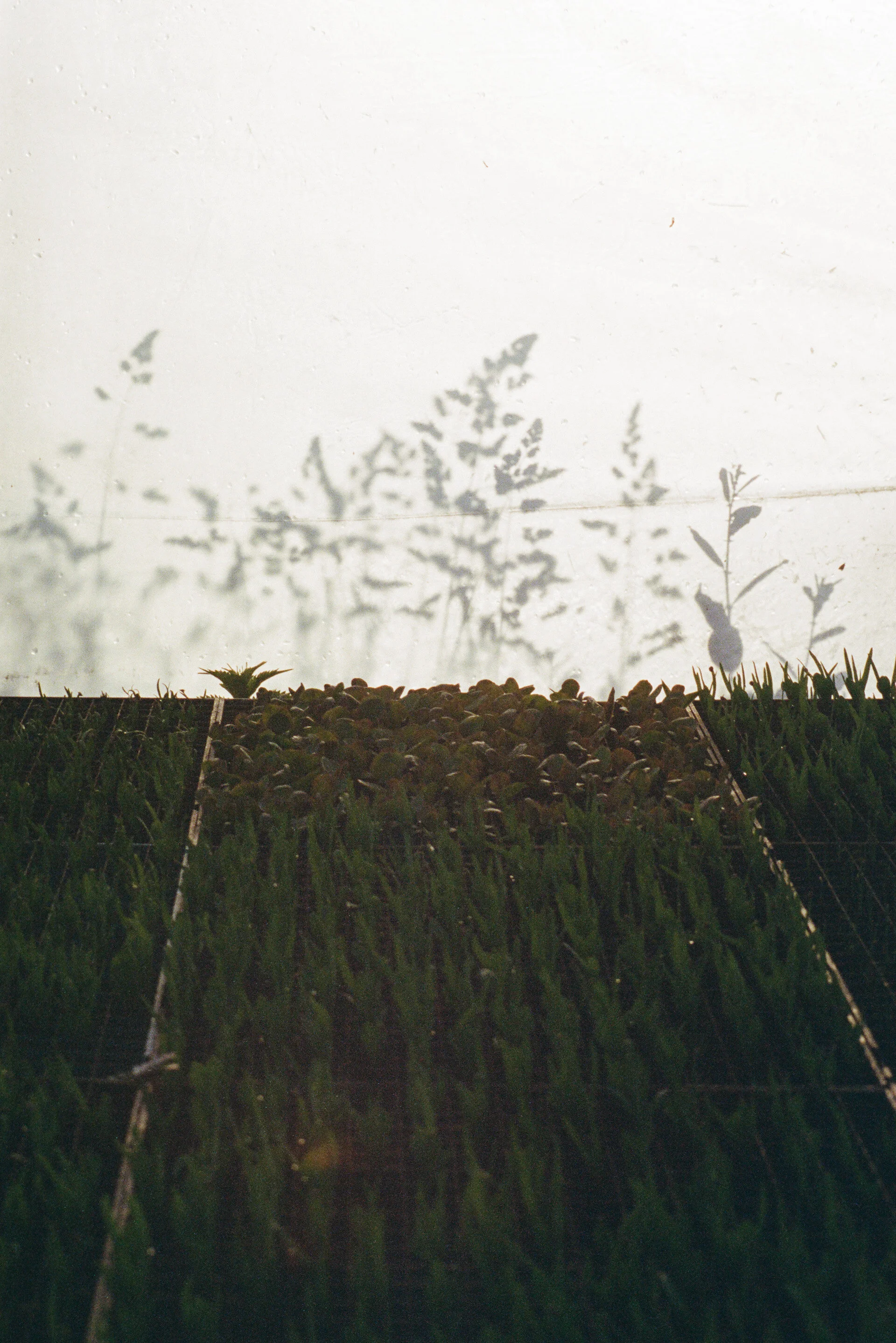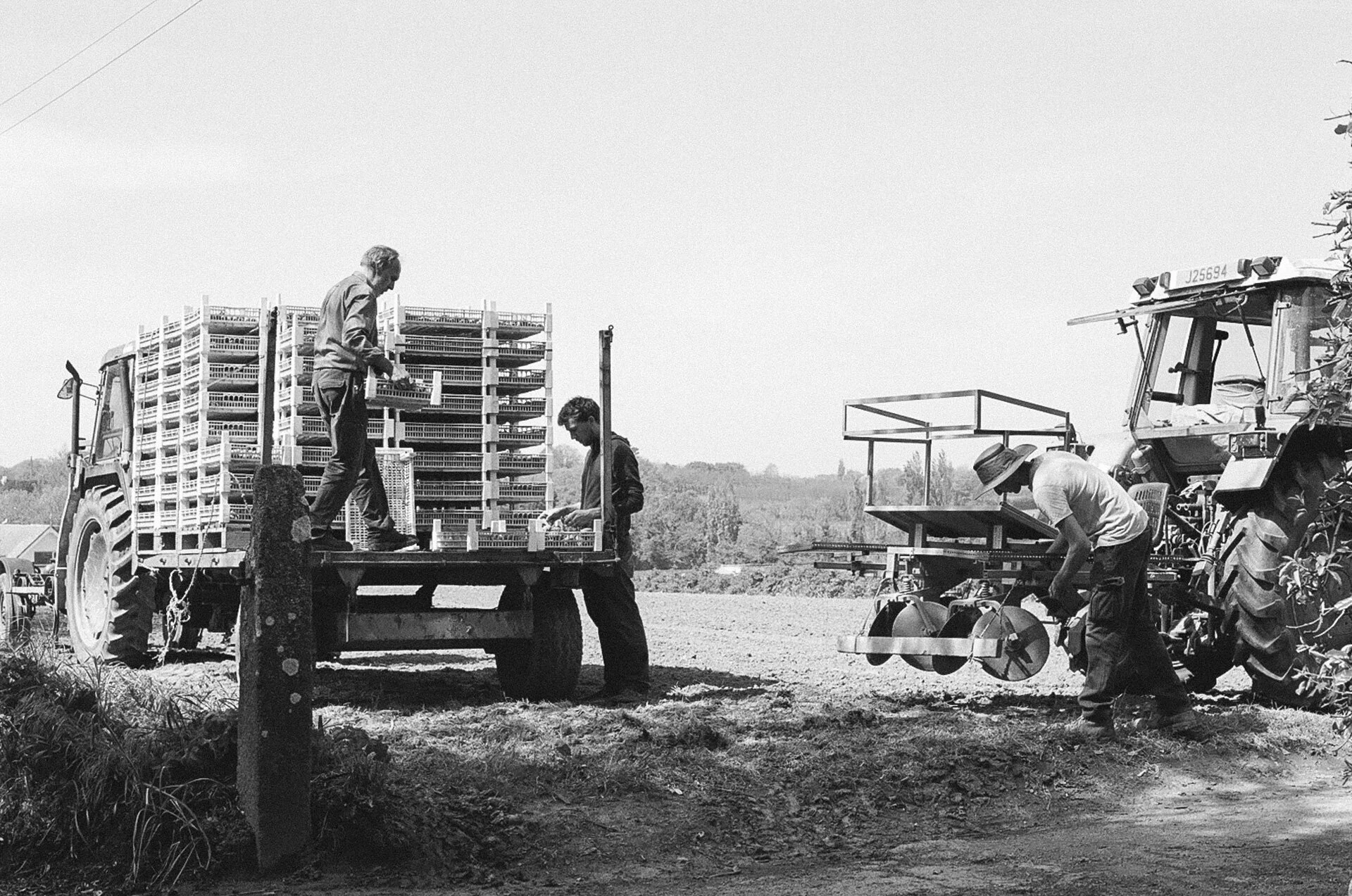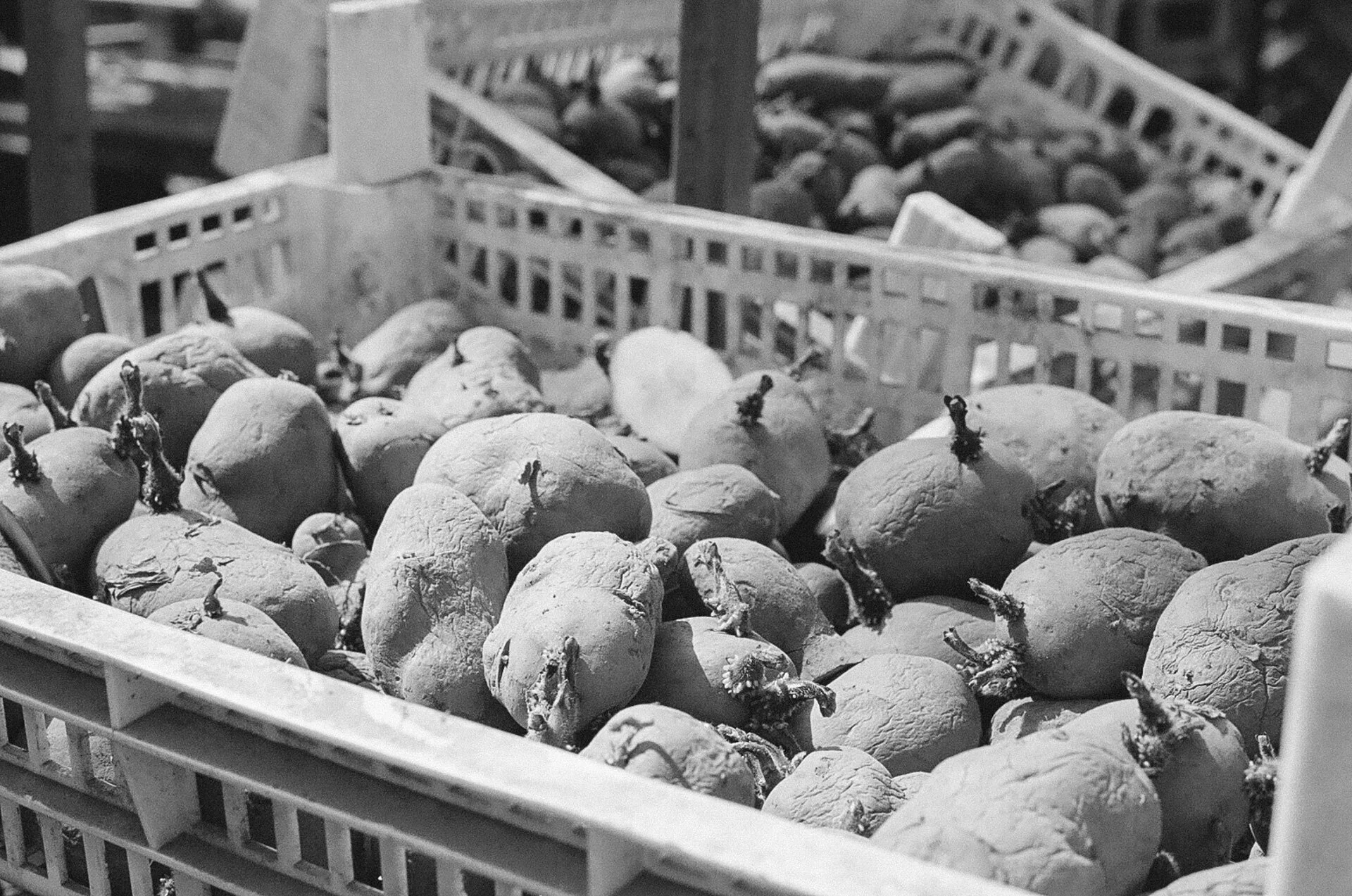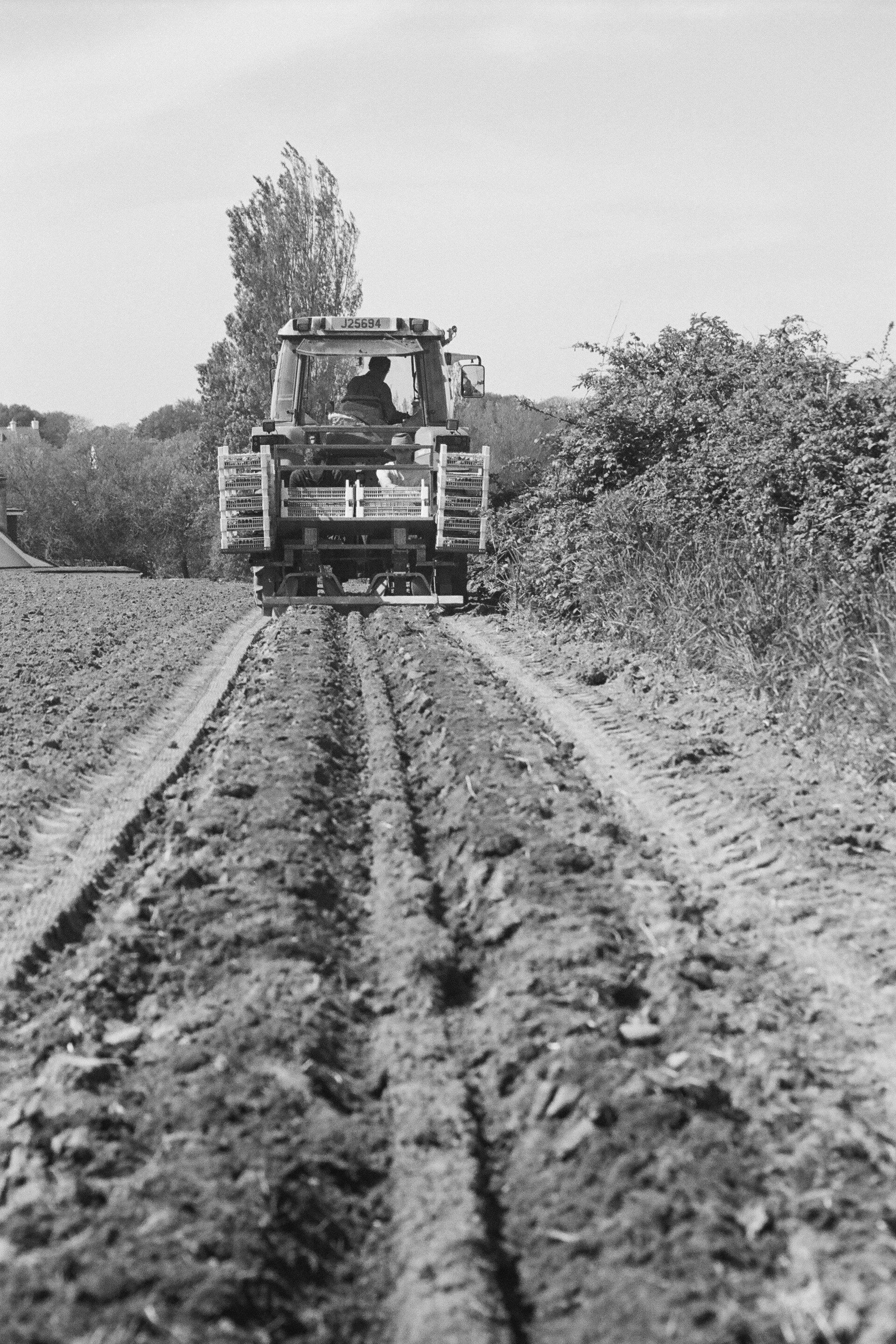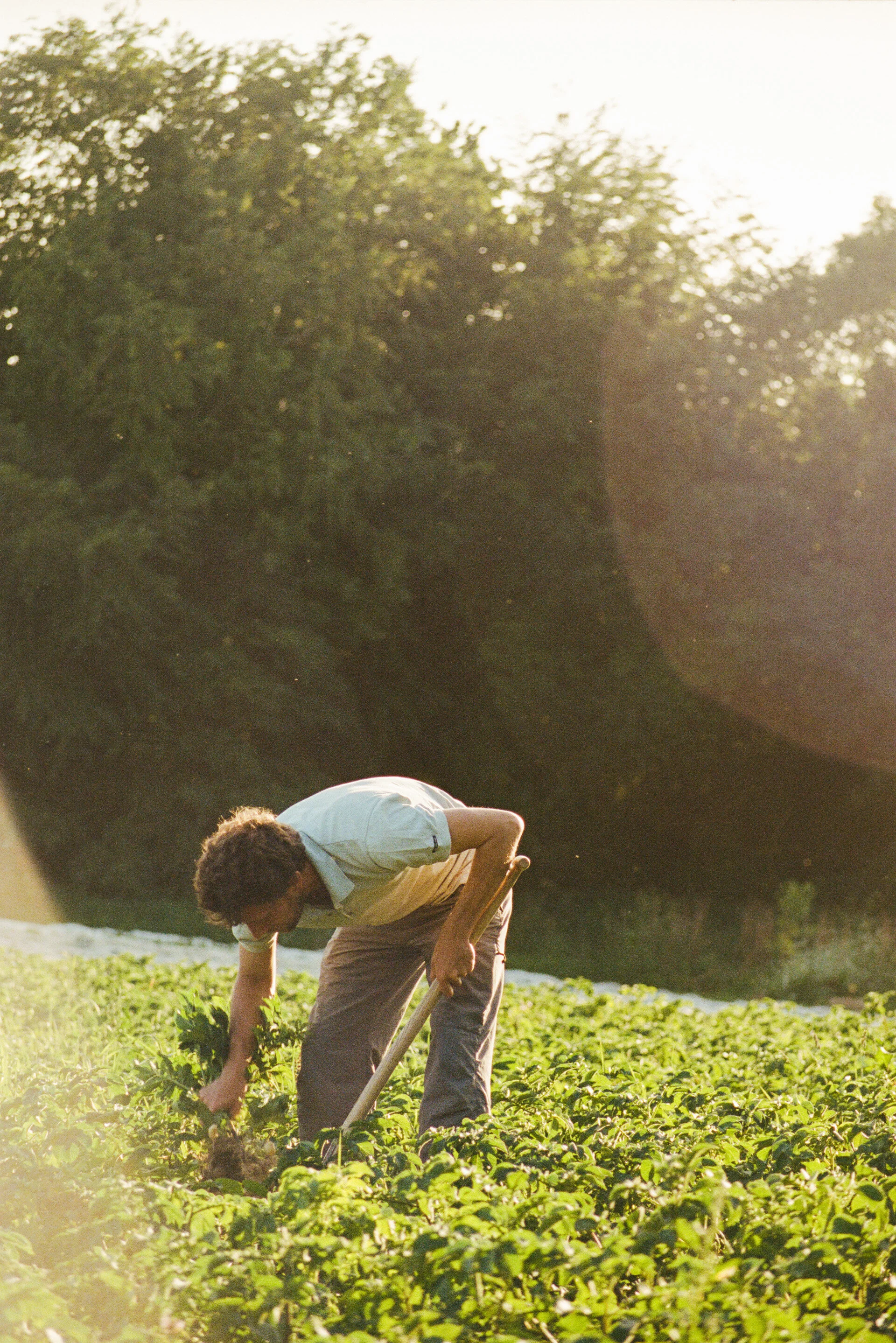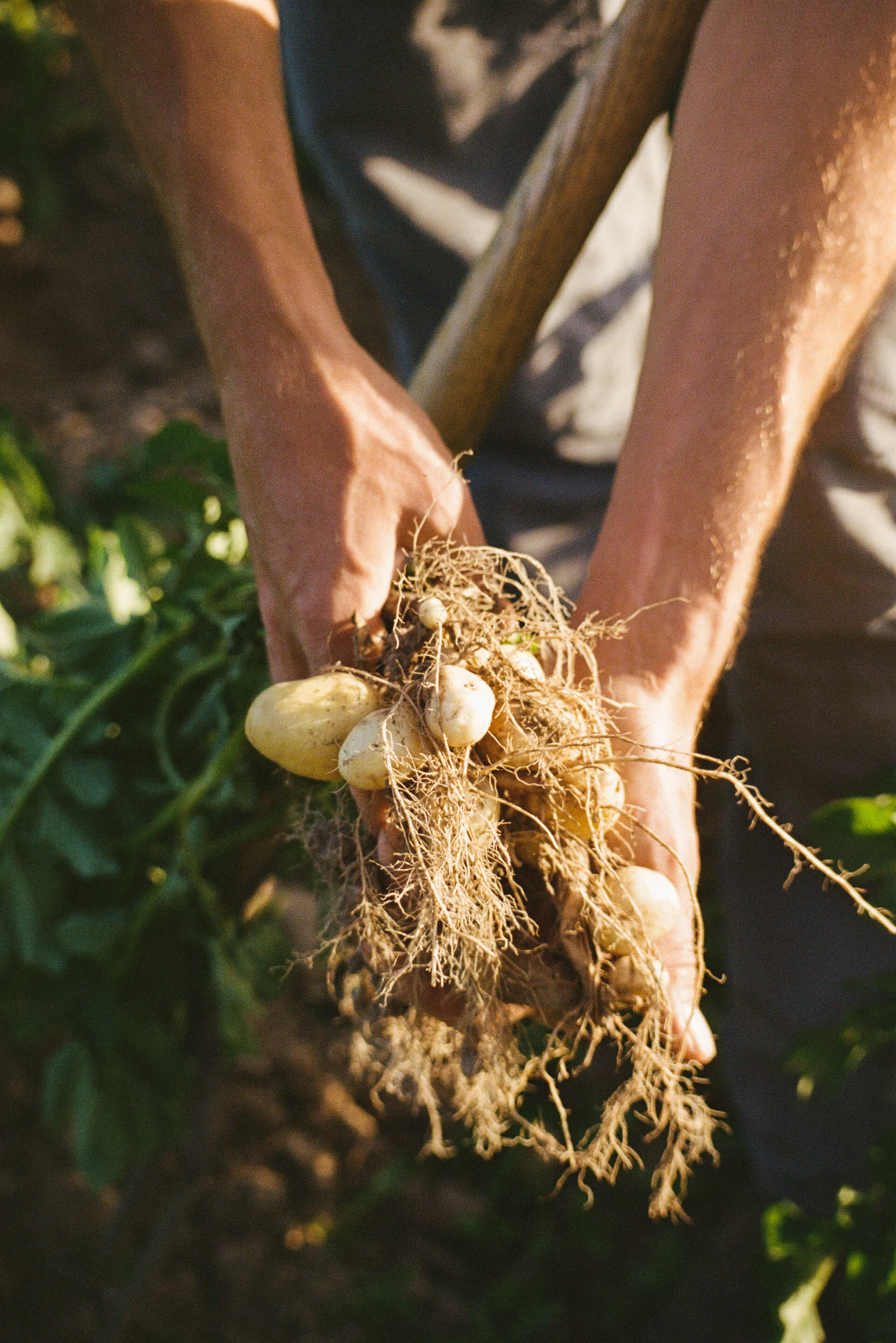A portrait of Justin Le Gresley at Anneville Farm.
Can you introduce the farm and talk about your approach to growing veg?
Anneville farm is a small family run farm on the East side of Jersey. At the end of 2019 we gained organic certification through the Soil Association and produce a wide range of seasonal vegetables throughout the year with an emphasis on freshness.
We only sell what we grow. As we look forward, we hope to build soil health through our approach to growing food and are constantly on the quest to implement the best practices on our farm, working with the land.
Clover, a cover crop used on the field before sowing and harvesting that improves organic matter levels and natural soil fertility.
What methods do you use to grow your royals?
We are trying to reduce tillage in preparing fields and using cover crops before hand to improve organic matter levels and natural soil fertility. We have had a few experiences of incorporating cover crop and have seen much improved moisture retention.
We are certified organic so our current soil amendments are a plant based fertiliser. We do not use plastic on our field scale plantings but prefer to wait for conditions to be right.
Do you plant anything else in the field apart from royals?
We might follow a crop of Royals with a cover crop or brassica crop. Brassica is another heavy feeder and can mop up some of the left over nutrients.
Rotation of crop become very important when you start going down the organic route (and should be even if you aren't organic), land management plays a key role in reducing the risk of disease and maintaining good nutrient balance for plant uptake.
How long is the season from planting to harvest?
The harvest interval between sowing and harvesting varies depending on the sowing date earlier planting might require upwards of 16 weeks where as later planting when the soil is warmer and conditions generally more favourable might take as few as 8 weeks.
What was your reason for waiting to plant them later in the season?
This year we planted a lot later due to the horrendously wet winter we had. Our soil is our greatest asset and requires careful consideration. You can do some very destructive things to soil as it has been proven in a number of countries around the world where there are unfortunately now barren portions of land due to poor land management/exploitative practices.
The European Joint Research Centre conducted a study which found approximately 24% of arable land world wide was undergoing severe erosion.
Why is soil health important?
A healthy soil is full of life even if we can't see it, it supports life above ground too for both plants and insects. Building a healthy soil requires planning to maintain it. We are on a journey to improve our soil health, it doesn't happen overnight.
Soil health in our opinion is the base for what is then to come plant health, bio-diversity and ultimately our health.
There are many connections being made with a lot of the research in its infancy or indeed only scratching the surface of the roles of different elements within the system.
We also see a healthy soil being more resilient especially with the more varied weather patterns we are seeing. Increased water filtration and ability to store moisture perhaps being one of the most obvious benefits to not only growing food but also to the surrounding hydrological system and the local water supply.

